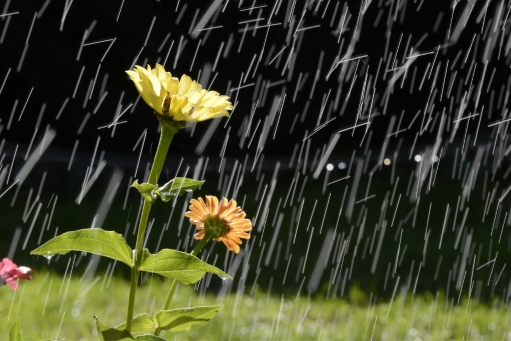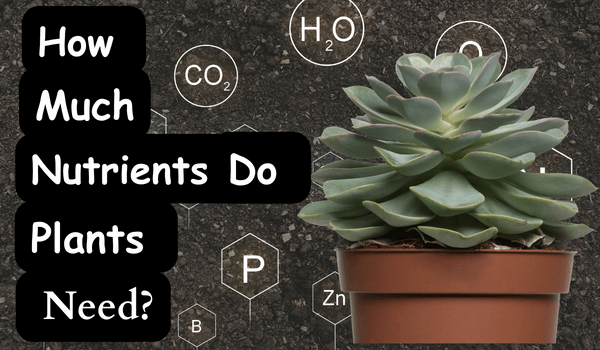Understanding the various products beneficial for the growth and health of plants, such as neem oil, coco peat, potassium powder, etc., is relatively easy as they are readily available in both markets and online. However, knowing precisely how and when to apply these products to plants is often lacking. Along with that, understanding the necessities of pruning, repotting, and fertilizing during the rainy season might also be unfamiliar to many. These aspects are crucial for maintaining optimal plant health and promoting robust growth. Therefore, knowing such comprehensive information on the application and timing of these plant care products, as well as the essential practices during the rainy season, is important for plant enthusiasts to ensure successful plant care and cultivation.
Cow Dung
Cow dung manure is utilized as a fertilizer in plants. It can improve soil structure, allowing it to retain more nutrients and water, thus making it more fertile. Cow dung manure enhances soil aeration, aiding in better root development and increasing the soil’s ability to absorb and retain moisture. As a result, plants experience improved growth and overall health due to the enhanced development of their roots.
Potassium Powder
Potassium promotes rapid root growth and enhances resistance to drought. It activates several enzymatic processes, reduces water loss, and alleviates wilting. Additionally, it contributes to photosynthesis and food production in plants while also helping to prevent diseases. Potassium is crucial for overall plant health and plays a vital role in various physiological processes, ultimately ensuring strong and healthy growth and resilience to environmental stressors.
Neem Oil
This is a natural insecticide that controls pests, fungi, and mold, keeping plants safe. Its insecticidal properties not only eliminate pests that harm plants but also prevent harmful insects from approaching the plant. This oil is entirely safe for plants, ensuring their complete protection. Additionally, it serves as a preventive measure against potential damage caused by harmful pests and diseases, contributing to the overall health and well-being of the plants.
Pesticides
It is advisable to apply pesticides on plants during cooler times of the day, preferably in the morning or evening. Some pesticides have effects that last up to 15 days, while others can remain effective for up to 35 days.
Note: However, excessive use of pesticides can cause significant damage to the beneficial nutrients present in the soil. Therefore, it is crucial to use pesticides judiciously, following recommended dosages and application timings, to ensure effective pest control without harming the soil’s nutritional balance.
Use of Coco Peat Is Beneficial For Plants
The use of coco peat is highly beneficial in planters. For planting in planters, a mixture of cow dung manure, vermicompost, and coco peat in a ratio of 2:1:1 is recommended. Coco peat is excellent for seed germination and prevents the growth of fungi. It can retain water, thus ensuring plants remain hydrated. Approximately 7 liters of water can be absorbed by one kilogram of coco peat. Coco peat contains various essential nutrients such as nitrogen, phosphorus, potassium, magnesium, copper, zinc, etc., which are vital for the growth of plants.
Things To Do in Rainy Season

- It is crucial to prune and trim plants timely. Pruning during the rainy season is essential for maintaining the health and shape of plants, as excessive moisture can lead to overgrowth and the proliferation of diseases. Regular pruning helps remove dead or diseased branches, promotes air circulation, and encourages new growth.
- During the monsoon season, it’s important to provide plants with timely fertilization for nourishment. For this purpose, options like homemade manure or vermicompost can be utilized. These organic fertilizers replenish essential nutrients in the soil, promoting healthy growth and development of plants even amidst the increased moisture levels characteristic of the rainy season.
- Provide support to small plants and crops. It’s essential to offer assistance to young or fragile plants to help them grow upright and strong. This support can include using stakes, trellises, or other structures to prevent bending or breaking of stems, especially during windy or heavy rain conditions.
- Fungi come from the soil, so remove all the leaves from the bottom of the plant.
- During these days, there is a lot of fungal infestation, so trim dry branches and apply fungicide to the cut areas to keep the plants healthy. Regular pruning helps remove infected parts, reducing the spread of fungal diseases and promoting overall plant health. Applying fungicide provides an additional layer of protection, preventing fungal growth and ensuring the well-being of the plants. By taking these proactive measures, gardeners can effectively manage fungal infestations and maintain the vitality of their garden during periods of heightened fungal activity.
- During this season, when applying fertilizer, the first step is to remove the top layer of soil from the pots and fill that space with cow dung manure. This ensures that the plant receives adequate nutrients for healthy growth. By enriching the soil with organic matter like cow dung manure, gardeners provide essential nourishment to the plants, fostering robust development and improving overall plant health. This practice also helps in maintaining soil fertility and promoting sustainable gardening practices.
- In case of worms infesting leaves or foliage being eaten, mix liquid soap with neem oil and spray it on the affected leaves. This organic remedy effectively controls pests while being gentle on the plants, promoting their health and vitality.
- If the pots are empty, fill them with soil. Rainwater will not accumulate in the pots, and the plants will not die. Ensuring that pots are adequately filled with soil prevents water stagnation and provides a suitable growing medium for plants.
- Mix 5 ml of hydrogen peroxide in 1 liter of water and spray it on plants. This solution helps prevent diseases and pests from affecting the plants.
- If the growth of plants stagnates or roots start emerging from the pots, repotting becomes necessary. Repotting involves transferring the plant to a larger container with fresh soil, providing it with more space and nutrients to continue growing healthily.
- This is the time when one can prepare many plants through cuttings and air layering because most plants can be propagated through cuttings during these days. Cuttings involve taking a portion of a plant, usually a stem or leaf, and encouraging it to develop roots and grow into a new plant.
